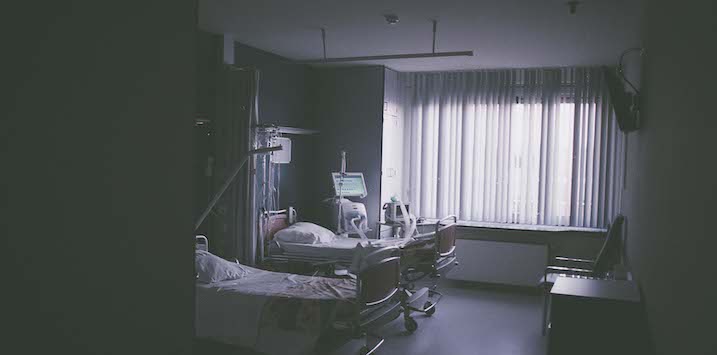Will Australia come to rue a lack of hospital beds?
How will we fare if the Coronavirus really takes off in Australia? Possibly not so well if the extent of available hospital beds is the benchmark.
One of the factors that will be important in determining the fatality rate from COVID-19 is the extent to which healthcare systems are overwhelmed by cases. An inability to provide enough care to the critically ill seems to lead directly to a high fatality rate.
This may be contributing to the troubling experience in Italy, which is well behind South Korea and even below China in the availability of beds. It is sobering to think that the US is no better positioned than Italy.
One thing that does seem clear is that aggressive, early testing to identify cases is a critical part of any management strategy. Hopefully Australia will not miss the opportunity to move decisively on this front.

Source: Wikipedia
You can read more of our insights on the Coronavirus below.
IS THE US ABOUT TO EXPERIENCE A NASTY SPIKE IN CORONAVIRUS CASES?
HOW INVESTORS COULD BENEFIT FROM THE CORONAVIRUS
ARE MARKETS SERIOUS ABOUT CORONAVIRUS?
MORE BY TimINVEST WITH MONTGOMERY

Tim joined Montgomery in July 2012 and is a senior member of the investment team. Prior to this, Tim was an Executive Director in the corporate advisory division of Gresham Partners, where he worked for 17 years. Tim focuses on quant investing and market-neutral strategies.
This post was contributed by a representative of Montgomery Investment Management Pty Limited (AFSL No. 354564). The principal purpose of this post is to provide factual information and not provide financial product advice. Additionally, the information provided is not intended to provide any recommendation or opinion about any financial product. Any commentary and statements of opinion however may contain general advice only that is prepared without taking into account your personal objectives, financial circumstances or needs. Because of this, before acting on any of the information provided, you should always consider its appropriateness in light of your personal objectives, financial circumstances and needs and should consider seeking independent advice from a financial advisor if necessary before making any decisions. This post specifically excludes personal advice.


I realize not only the elderly get sick but I’d be curious to see the above graph done as a function of age.
i.e. hospital bed / 1000 people over the age of 70 vs country OR
better still, keep hospital bed/100 as is and instead rank the countries from highest to lowest as a % of elderly (over 75) as a proportion of the whole population
I think representing the data this way will tell you more about how a country can respond to diseases and an ageing population better.
(Assuming, of course, that the number of physicians, nurses & aged care workers is proportional to # beds)
This problem of hospital beds has deeper dimensions. It really is about having experienced staff to provide care (this is very difficult work which takes years of training and on the job experience). With the neoliberalisation of health care (which in the public sector comes under the idea of New Public Management) health care staff are not as invested in their places of work as they once were. Work has become a place to earn a wage and these workers do face to face good work as an individual but they have little loyalty to their employers. Reciprocal loyalty has not been occurring as workers are workers are treated by management as fungible resources that are deployed as they see fit and then easily cast aside when not meeting managerial priorities (the treatment of whistle-blowers or insiders just trying to improve things casts a dark shadow).
Much of the workforce (and many of the most experienced staff) do agency work. They are often experienced and dedicated workers but they can easily melt away if the work gets too risky or too difficult. They may well have children or parents that are there first priority and do not want to put themselves at risk or are too busy caring for them and do not want to put their own family members at risk. The recent case of the Victorian health minister taking a swipe at a Doctor is a good example of how delicate this situation has become (and what these workers are up against). The situation in aged care will I am afraid be especially grim
Hopefully I am wrong on all these points but I fear that problems will start compounding very quickly.